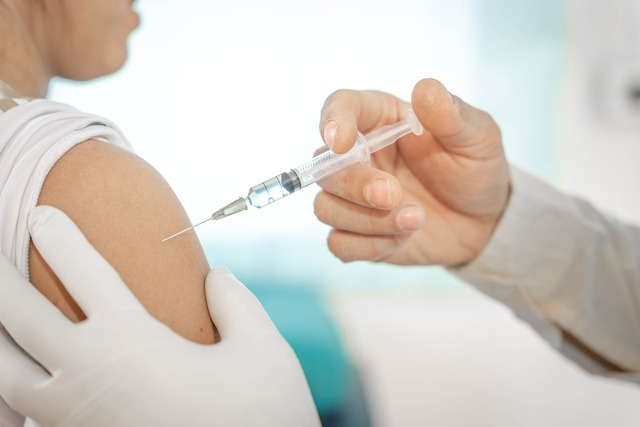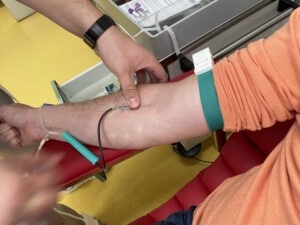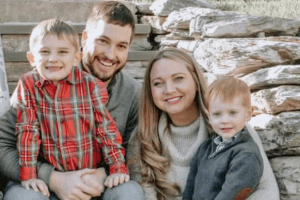
Lehigh Valley Topper Cancer Institute, part of Lehigh Valley Health Network (LVHN), announced the opening of the regions only clinical trial for an immunotherapeutic pancreatic cancer vaccine. Suresh Nair, MD, Physician in Chief of Lehigh Valley Topper Cancer Institute, is principal investigator of the randomized trial at LVHN, which will evaluate the drug, ELI-002 7P. The drug “teaches” the immune system to fight pancreatic cancer recurrence by targeting specific genetic mutations that cause cancer cells to grow.
After producing encouraging results in phase 1, ELI-002 7P has moved into phase 2 trials through the Memorial Sloan Kettering Cancer Alliance (MSK Cancer Alliance) and City of Hope.
Lehigh Valley Topper Cancer Institute is the only cancer center in the region, and one of just a dozen sites in the United States, where the phase 2 trial will take place. The Cancer Institute’s membership in the MSK Cancer Alliance brings world-class care, including clinical trials such as this, as well as the latest cancer treatments, to people in our region. MSK researchers were senior leaders in the phase 1 trial published in Nature Medicine in January 2024.
A hopeful treatment
ELI-002 7P is an investigational therapeutic peptide cancer vaccine developed by Elicio Therapeutics Inc. It is an off-the-shelf vaccine, meaning that it is not made from patientsindividual tumors. The vaccine is intended to treat cancers driven by seven common mutations in KRAS, present in about 30% of all solid tumor cancers and 85-95% of KRAS mutated pancreatic ductal adenocarcinoma patients. It works by sending signals to the immune system cells (T cells).
“The idea is to reprogram the tumor microenvironment,” Dr. Nair says, explaining that with pancreatic cancer, there is a sort of “” around the tumor that doesn’t allow T cells to penetrate. This has long been a problem. “The new vaccine accumulates in the draining lymph node and sensitizes the patients T cells to the specific KRAS mutation that is present in their pancreatic cancer. This allows the body to mount an immune response against the cancer,” he says. “Its revolutionary.”
Morgan Horton, BSN, RN, Director of Minimal Risk Research with Lehigh Valley Topper Cancer Institute, who is assisting with the study, says that there are specific requirements regarding cell mutations. “Trial candidates are patients who have one of seven KRAS mutations in their tumor sample,” she says. “Additionally, participants must be age 18 or older, and in stage 1, 2 or 3 of carcinoma of the pancreas. They will have had a surgical resection, have completed chemotherapy and have no evidence of disease.”
Two-thirds of the patients in the randomized study will receive the vaccine and one-third will receive a placebo. Recruitment of patients has already begun and is targeted to continue until November 2024. Patients who are still receiving chemotherapy post-surgery can be screened for the trial, allowing them to begin sooner.
How patients enroll
To enter the study, physicians refer patients who are interested and eligible. Candidates will undergo a screening, which includes blood work, an electrocardiogram and imaging if they have not recently had a computed tomography (CT) scan. Since the study is looking at how the vaccine affects T cells, participants will also undergo two leukaphereses, where blood cells are extracted from the patient for evaluation. One is done at baseline and another about 10 weeks into the study.
Those who participate in the study receive 10 doses of the vaccine in three phases, with four injections given in each dose. “This builds up immunity against the cancer gradually,” Dr. Nair says. Those who receive it have reported only mild side effects such as fatigue or achiness in their limbs. The patients are monitored regularly with blood work and imaging. Those in the study who do not receive the vaccine can opt to cross over and get the vaccine if their monitoring CT scan shows cancer activity.
The patients, who are typically very motivated, continue to be followed for three years after the trial.
“Stage 3 pancreatic cancer, despite surgery and six months of chemotherapy, returns within two years in 80% of cases. Our hope is that this vaccine will change that,” Dr. Nair says. “These kinds of personalized cancer vaccines are in the early innings of a major biological breakthrough, and were extremely excited to be a part of it. This one could determine the future of pancreatic cancer treatment and survival.
For information on enrolling in the ELI-002 7P clinical trial, call 610-402-9543.
For more information about the work that takes place at Lehigh Valley Topper Cancer Institute, visit LVHN.org/clinicaltrials.
Did you know?
Pancreatic cancer is one of the deadliest cancers, and even with surgery, only about 12% of patients survive five years after diagnosis. Chemotherapy, radiation, targeted therapy and current immunotherapies are also largely ineffective against pancreatic cancer, so new therapies are urgently needed for patients who face this disease.
About Jefferson
Nationally ranked, Jefferson, which is principally located in the greater Philadelphia region, Lehigh Valley and Northeastern Pennsylvania and southern New Jersey, is reimagining health care and higher education to create unparalleled value. Jefferson is more than 65,000 people strong, dedicated to providing the highest-quality, compassionate clinical care for patients; making our communities healthier and stronger; preparing tomorrow’s professional leaders for 21st-century careers; and creating new knowledge through basic/programmatic, clinical and applied research. Thomas Jefferson University, home of Sidney Kimmel Medical College, Jefferson College of Nursing, and the Kanbar College of Design, Engineering and Commerce, dates back to 1824 and today comprises 10 colleges and three schools offering 200+ undergraduate and graduate programs to more than 8,300 students. Jefferson Health, nationally ranked as one of the top 15 not-for-profit health care systems in the country and the largest provider in the Philadelphia and Lehigh Valley areas, serves patients through millions of encounters each year at 32 hospitals and more than 700 outpatient and urgent care locations throughout the region. Jefferson Health Plans is a not-for-profit managed health care
organization providing a broad range of health coverage options in Pennsylvania and New Jersey for more than 35 years.
# # #
Media Contact
Brian Downs
Brian.Downs@lvhn.org
484.884.0825





































